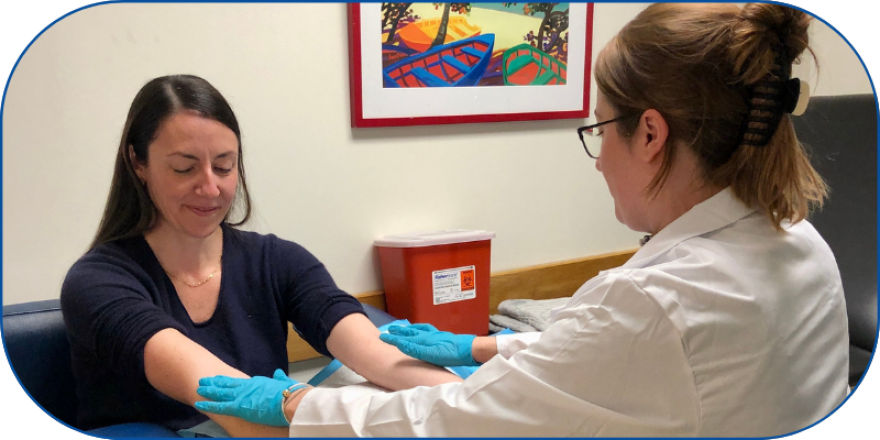Researchers from the University of New Hampshire are exploring the connection between access to food and the intake of fish and fiber-rich meals in local Latino communities. They aim to use the results to help state health agencies nationwide develop new culturally tailored nutrition programs.
The first study is led by María Carlota Dao, a professor of human nutrition at UNH who is also Venezuelan. She's analyzing how diets in the Latino communities affect intestinal flora – microbes in intestines that benefit health. She said low levels of fiber consumption and lack of information about this topic put many people at risk.
“Latino populations disproportionately struggle with Type 2 diabetes, cardiovascular disease, and obesity,” she said. “We are doing research that can help Latinos who live in New Hampshire and around the country.”
The second study is led by Sherman Bigornia, an assistant professor in the department of agriculture, nutrition and food systems at UNH. It aims to develop story-based messages that can be included in nutrition education programs.
The study specifically focuses on fish consumption among local Latino communities. The laboratory will collect information about the availability of fish in their neighborhoods and what prevents them from increasing their fish consumption.
Yobanna Taylor, a bilingual project collaborator and nutrition educator at UNH, talks directly with study participants to understand cultural and social factors influencing dietary habits. Taylor, who is Dominican, said there are a lot of beliefs about the consumption of fish in her community.
“Latinos debate the best way to cook fish or consume it depending on the love memories they have from their families and countries,” said Taylor.
The laboratories will provide interpreters by phone or video call. Both studies plan to recruit participants who are eligible to participate in the Supplemental Nutrition Assistance Program, also known as SNAP or food stamps. They used this parameter to focus on populations with difficulties accessing food or living in food deserts.
“Access to nutritious foods may be hindered by lack of transportation,” said Dao.
She said this is an important factor local health agencies should be looking at.
Dao said studying the Latino population's nutritional habits is challenging because of the many cultural differences between people from different countries.
More information is available in Spanish on the fiber UNH study website and the fish consumption UNH study.





